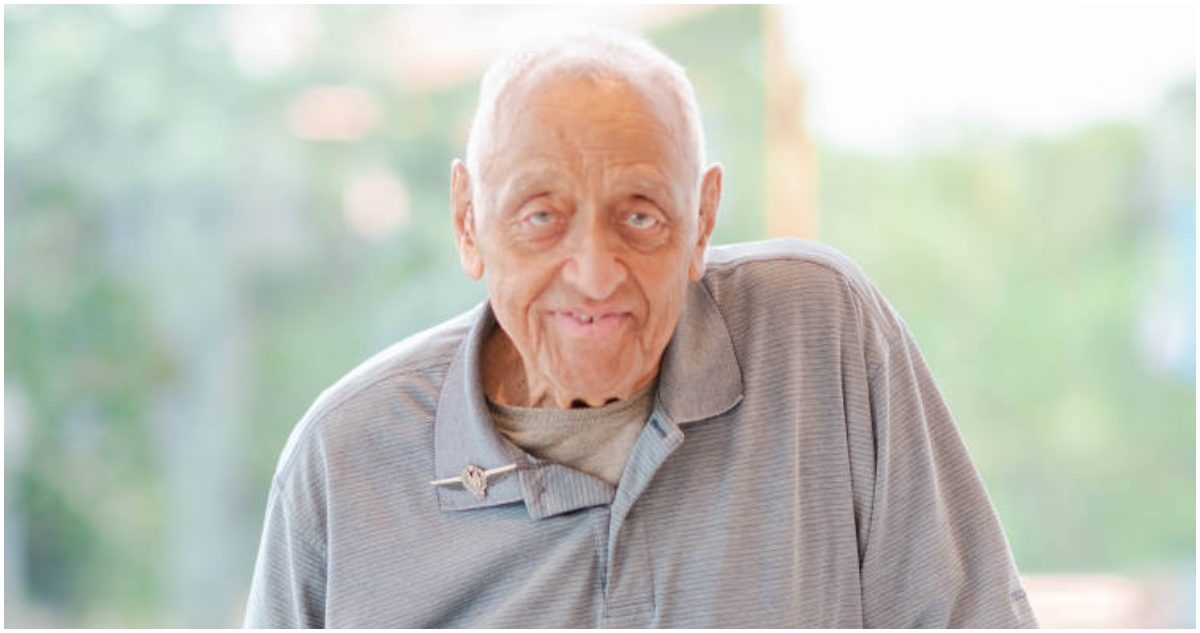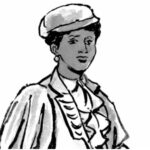Capt. David E. Harris made history in 1964 as the first Black commercial airline pilot, breaking down racial barriers and paving the way for generations of Black aerospace professionals. His trailblazing journey not only shaped the aviation industry but also inspired countless individuals to follow their dreams in the skies. Harris’s legacy is a testament to his perseverance, humility, and unyielding dedication to uplifting others in the field.
The Historic Achievement That Changed Aviation Forever
In November 1964, Capt. David E. Harris made history when he was hired by American Airlines as the first Black commercial pilot. This milestone came after a long and arduous journey, during which Harris faced constant racism and discrimination. Before his hire, Harris had served in the U.S. Air Force, where he experienced the challenges of being one of the few Black airmen. In his memoir Segregated Skies, Harris shared his struggles, recalling how he was often forced to eat in the kitchen of diners while his white colleagues enjoyed meals in the dining room.
Despite these obstacles, Harris remained steadfast in his pursuit of a career in aviation. His breakthrough moment came when he secured a position with American Airlines in 1964, after being told by an interviewer that flying ability, not skin color, was all that mattered. This message from American Airlines was groundbreaking, as it showcased that merit could triumph over racial prejudice.
Overcoming Racism in the Skies and Groundbreaking Milestones
Harris’s journey was not without its challenges, and it was shaped by a deeply segregated society. Throughout his time in the Air Force, he faced bigotry, including an incident where a white colleague refused to sit with him at a diner. Even after his historic hiring at American Airlines, Harris continued to experience racist comments and stares from passengers. Yet, Harris took these experiences in stride, focusing on his work and fostering a sense of calm and professionalism in the air.
He was also part of a historic moment in aviation history when he flew the first all-Black flight crew, known as the “Soul Patrol.” Alongside fellow pioneers Herman “Sam” Samuels and Jim Greene, Harris made sure that the crew’s presence was known, walking boldly through the terminal and ensuring that their achievement was visible to all. The “Soul Patrol” became an iconic symbol of Black excellence in aviation.
A Legacy of Mentorship and Giving Back
Capt. Harris was not just a trailblazer in aviation but also a dedicated mentor. As one of the founding members of the Organization of Black Aerospace Professionals (OBAP), Harris made it his mission to ensure that others could follow in his footsteps. The organization, founded in 1976, now has over 5,000 members, thanks in part to Harris’s encouragement and guidance.
“He just wanted to be helpful, a quality a lot of pilots don’t have,” said Capt. Bill Norwood, a former United Airlines pilot and OBAP member. Harris’s selflessness and commitment to the next generation of Black pilots set him apart. He worked tirelessly to help young pilots of color secure positions, ensuring that they were qualified and well-prepared for their careers. His mentorship created a network of support and a clear path for others to succeed in the field.
Capt. Harris’s Influence Beyond Aviation
Beyond his professional achievements, Capt. Harris’s influence extended to the Civil Rights Movement. In 1971, he flew the body of civil rights leader Whitney M. Young Jr. from New York to Kentucky, further solidifying his role in history. On April 4, 1968, when Dr. Martin Luther King Jr. was assassinated, Harris was in the sky, enduring racist comments from his copilot while flying over a burning Chicago. Despite these challenges, Harris never allowed racism to diminish his love for aviation.
“Some people just carry themselves with so much poise and grace that they really capture your attention,” said Capt. Dennis James, a retired pilot for American Airlines. Harris’s demeanor, coupled with his determination, made him a figure admired by his colleagues and a symbol of perseverance for future generations of Black aerospace professionals.
The Continuing Legacy of Capt. David E. Harris
Capt. Harris passed away on March 8, 2024, but his legacy lives on. His daughter, Leslie Germaine, reflected on his impact, noting the large number of Black pilots who attended his memorial service. “This is your father’s legacy,” said Capt. James, as he looked at the sea of Black faces in the room. Harris’s impact is undeniable, as the number of Black commercial pilots has grown significantly since his groundbreaking achievement. However, as Germaine stated, “There is a long way to go,” highlighting the ongoing work needed to diversify the aviation industry.
Capt. David E. Harris’s journey was one of resilience and dedication. As the first Black commercial pilot, he broke barriers, inspired generations, and helped shape the future of aviation. His legacy continues to inspire, proving that the sky truly is the limit.





